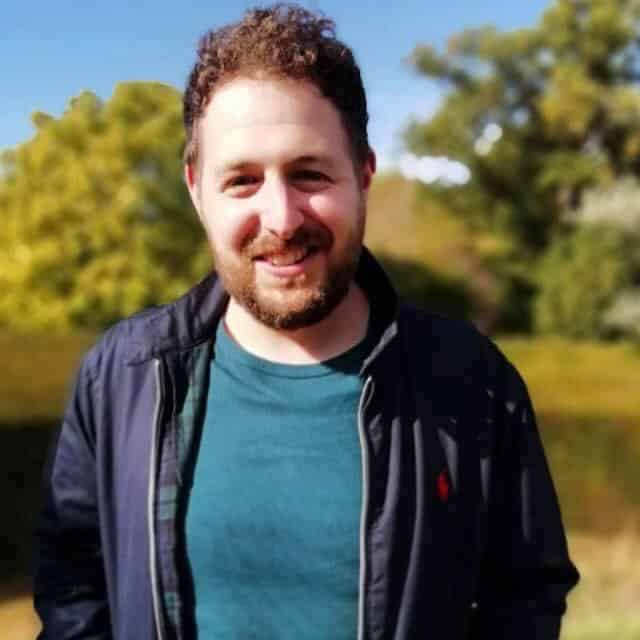Aron Bennett, OCD advocate and author, reflects on his journey of recovery over a period of 12 years, focusing on the difficulties he faced when trying to access medication for his OCD, which ultimately transformed his life.

It goes without saying that the process of seeking mental health support from a medical professional can be daunting. Not always certain we deserve it, not even sure if our problem really is OCD, it’s no wonder the lag time between symptom onset and getting the right treatment is so horribly protracted (the current delay is thought to be 6-7 years on average). For me, it took 12 long and painful years.
I first experienced symptoms of OCD when I was 10 years old. My concerns centred around whether I might have left the bathroom tap running or if my hands and face were clean. It seemed to be a phase I was going through; my symptoms improved with only a few months of help from a child psychologist and I remained well for close to eight years. Though by the time I was 18, the thoughts had returned with a vengeance and taken an even darker turn. Worried I was a ‘bad person’, my intrusive thoughts became entirely debilitating by the time I was in my second year of university.
When I eventually found myself able to at least entertain the fact I was neither ‘mad’ nor malevolent – and that yes, I really did have a mental health condition called OCD – I plucked up the courage to ask my GP what the treatment options were. This was 2006. His response was direct and uncompromising and he seemed somewhat put out. Medication – which I had cautiously suggested – was a last resort: ‘only if, and when, talk therapy doesn’t work.’
With the attendant stigma around medication at that time, even within mental health communities, I accepted my doctor’s knee-jerk dismissal. But was there evidence for his casual rebuttal? Or was it simply an unconscious aversion to a reliance on pills? Whatever it was, I didn’t feel reassured that his response was thorough, or grounded in evidence. Yet I accepted it, because he was the expert, and I was the patient. (He knew what he was talking about, didn’t he?)
In the following years, my OCD waxed and waned. I tried several courses of CBT (all without proper ERP – I didn’t know how crucial this was) and while each helped a little, overall my OCD improved only minimally. I was a long way off from feeling ‘recovered’.
With therapy avenues exhausted, I felt I needed to try something different. At that time, medication was increasingly being described by professionals and in journal articles as an ‘adjunctive’; a means of calming the whirring thoughts sufficient to allow the words of talking therapy to start being heard. Like a neural kid glove to soften the blow of repeated and pernicious thoughts and urges, meds were being heralded as having a lowering effect on the crashing waves of anxiety.
Fast forward to 2010s, and the evidence for medication intervention had grown even stronger, and people were starting to talk about taking meds for their mental health more openly. That is not to say SSRIs were considered the perfect fix for everyone – or that potential side effects weren’t advised as something to be carefully considered – but this growing evidence led me to question if the original medical advice I received dismissing the value of medication was right.
A decade on from my first trip to the doctors, in 2016, I found myself rocking back and forth in a toilet cubicle at work during my lunch break. My OCD was so debilitating I could barely function. I was in a constant state of turmoil, and I knew I needed help from a professional. Only this time I was going to ask again – upfront – about starting medication.
I’ve now been taking Sertraline for six years and six months and, for me personally, I am glad of it. I am as happy and well as I have ever been since my diagnosis all those years ago at university (I am now 37). And while I do not look back in anger over harder times which might otherwise have been avoided, I do regret not being provided with the facts sooner: 1) that CBT for OCD must include ERP and 2) that SSRI medication can be totally transformative for many – and not as a last resort.
My GP’s inaccurate comment back in 2006 – which I’m sure he deemed innocuous – had disastrous consequences for me, derailing my recovery journey for 10 years. Thankfully nowadays it’s easier to access support and information about the recommended treatments for OCD. Charities like OCD Action can equip people with knowledge to navigate the NHS system and access the treatment they need to get better. Things like the NICE Guidelines and patients’ Right to Choose make for a slightly easier journey. A harder issue to address is the feeling that people with OCD often have that they don’t deserve to get better, and the lack in confidence to assert their rights to be heard and to access the best treatment on offer. For these reasons finding and receiving the recommended treatments can still be a difficult and slow process for many.
If there’s one lesson my own rather typical and unremarkable journey has highlighted to me then it is this: don’t be deterred getting help and don’t accept second best. A level of wellness is possible for those who seek it, good treatment is available, and there is support out there to help you access it. Some things, I have learned, are worth fighting for. Seeking treatment for OCD is unquestionably one of them.
OCD Action’s Helpline is here to support you through the process of seeking treatment. Get in touch today.
